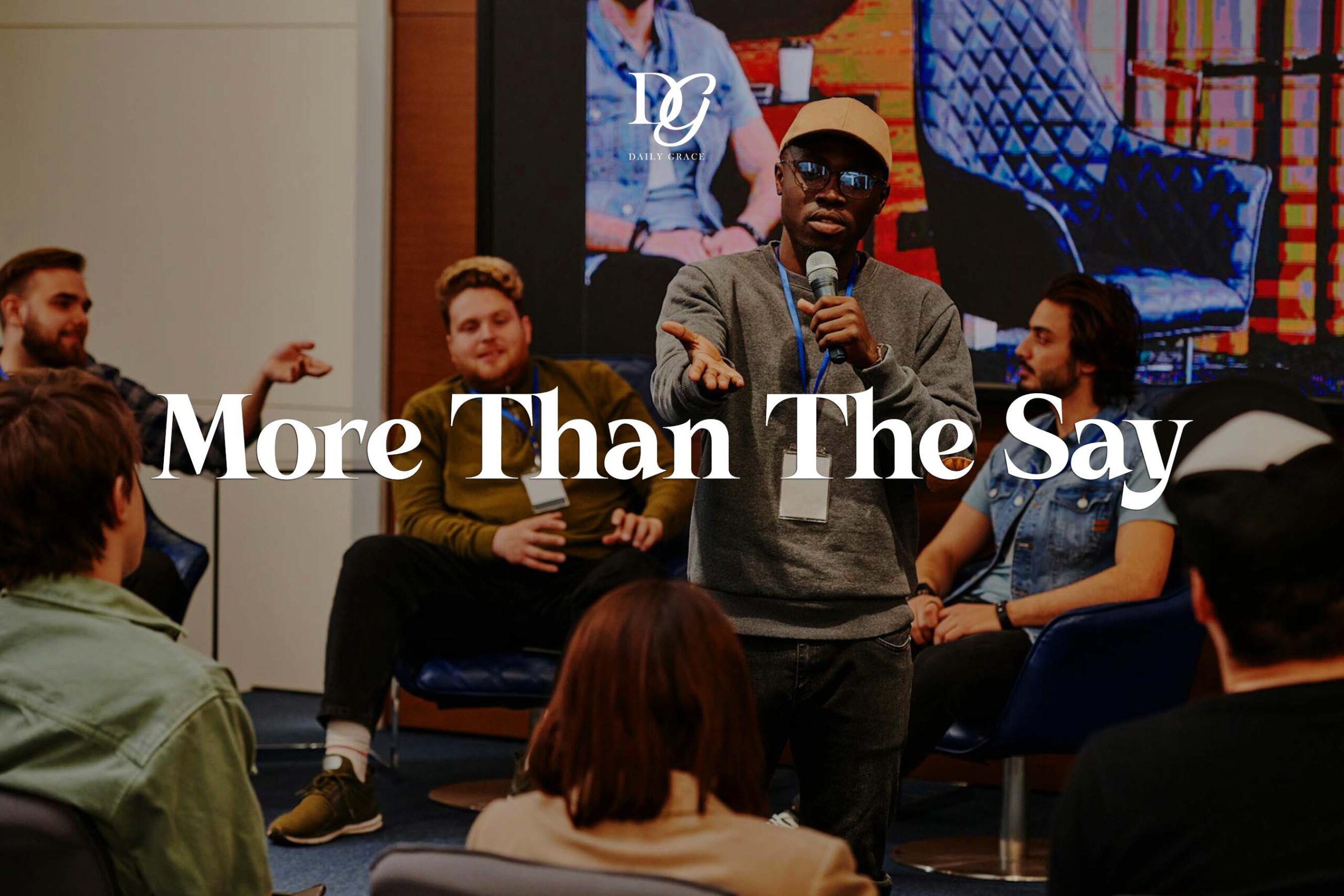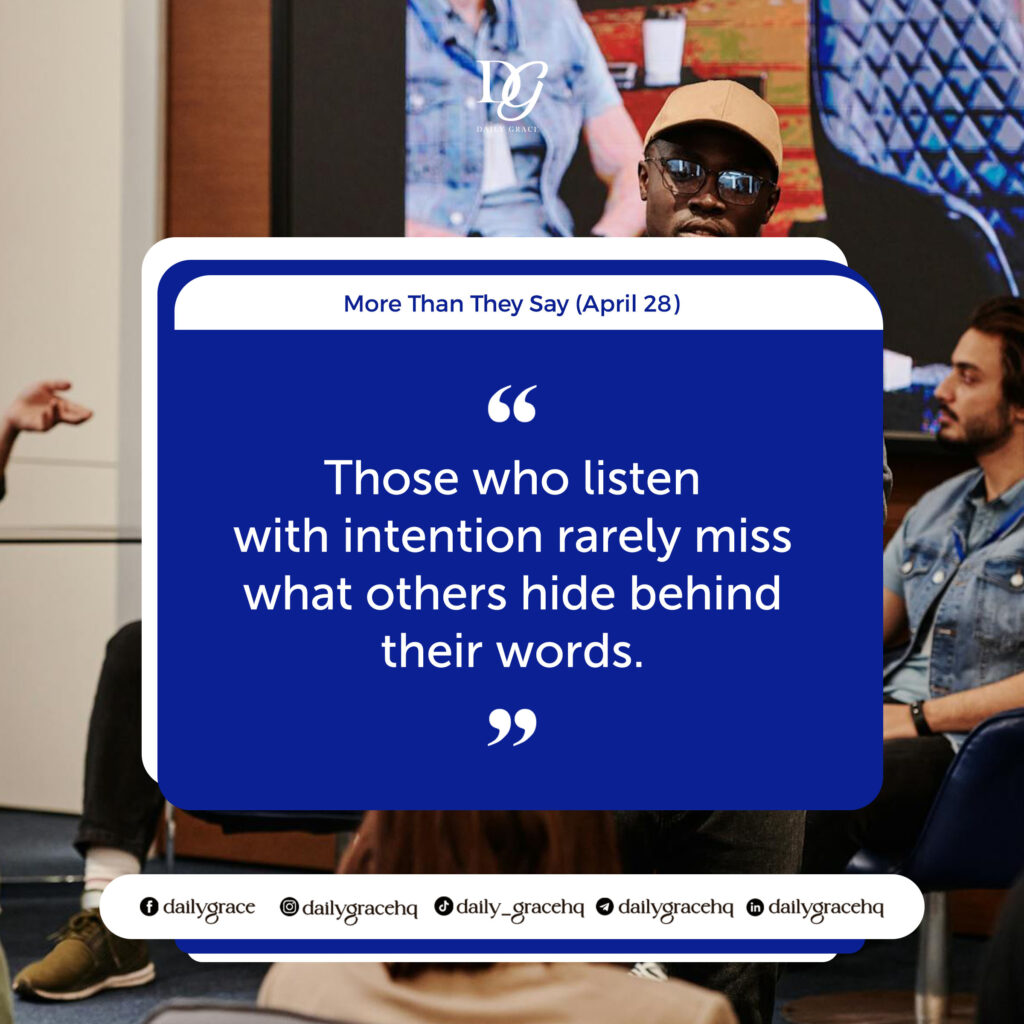Inspiring Change Every Day with Grace
More Than You Say

It is easy to assume that the person who talks the most is the most influential in the room. But that’s untrue. People with real and better influence are often better listeners; the kind that hears what’s being said and what isn’t.
Listening more and talking less is about learning to truly discern the thoughts, feelings, and motivations of others before choosing how you show up.
It’s about trading the impulse to react for the patience to understand. Most people don’t actually say what they’re thinking, not directly. But they always give clues. Through their tone, their pauses, their eyes when they look away, or the way they circle around a topic without touching it.
When we slow down and pay attention, we start to see beyond words and into the real message. This approach is especially powerful in relationships; romantic or otherwise where decisions aren’t made in isolation.
Think about how many misunderstandings could be avoided if we stopped trying to win the conversation and instead tried to understand where someone is coming from.
Listening intentionally is how we gather emotional data. It’s not passive. It’s investigative, attentive, and deliberate. It equips us to respond, not out of ego, but from insight.
It’s also strategic. In workplaces, friendships, and even family dynamics, those who can listen with discernment hold quiet leverage. They anticipate conflict, understand team morale, detect unspoken needs, and make decisions that carry the weight of empathy.
This doesn’t mean being silent all the time, it means knowing when to speak and when to observe. It means recognizing that not every silence needs to be filled with your opinion.
Sometimes, the most influential thing you can say is… nothing. At least, not yet. This strategy is a discipline. It’s practised in everyday moments, during meetings where others are venting, in phone calls where someone rambles, and in texts where a short reply hints at a deeper frustration.
It’s nurtured through curiosity. Why did they say it that way? What’s not being said here? What do I know about this person’s patterns that could explain their behaviour?
The more curious we are about others, the better we get at reading them. And the better we read them, the wiser we become in deciding how to respond.
Listening doesn’t just help us understand others, it also reveals ourselves. In holding back from interrupting, we learn how impulsive we are. In sitting in silence, we meet our discomfort.
But it’s in this discomfort that growth happens. We start recognizing how often we talk to fill space, avoid vulnerability, or prove a point. And the moment we become aware of that is the moment we start changing how we relate and not just react.
Pay attention more than you think you need to. You’ll be surprised how much more you learn, how much calmer you feel, and how much clearer your decisions become when they’re based on understanding, not assumption. Be intentional about listening.
No Copyright infringement intended.
Have you ever made a better decision just by holding your tongue and listening longer? What did you observe that changed everything?
Use the this link to share your story and experience anonymously https://gdpd.xyz/dailygrace
PS: Kindly Follow our WhatsApp Channel at https://whatsapp.com/channel/0029VawUlQGBPzjQXzs6fX2Q for more engaging content.


I can really relate to this. Listening is very key.